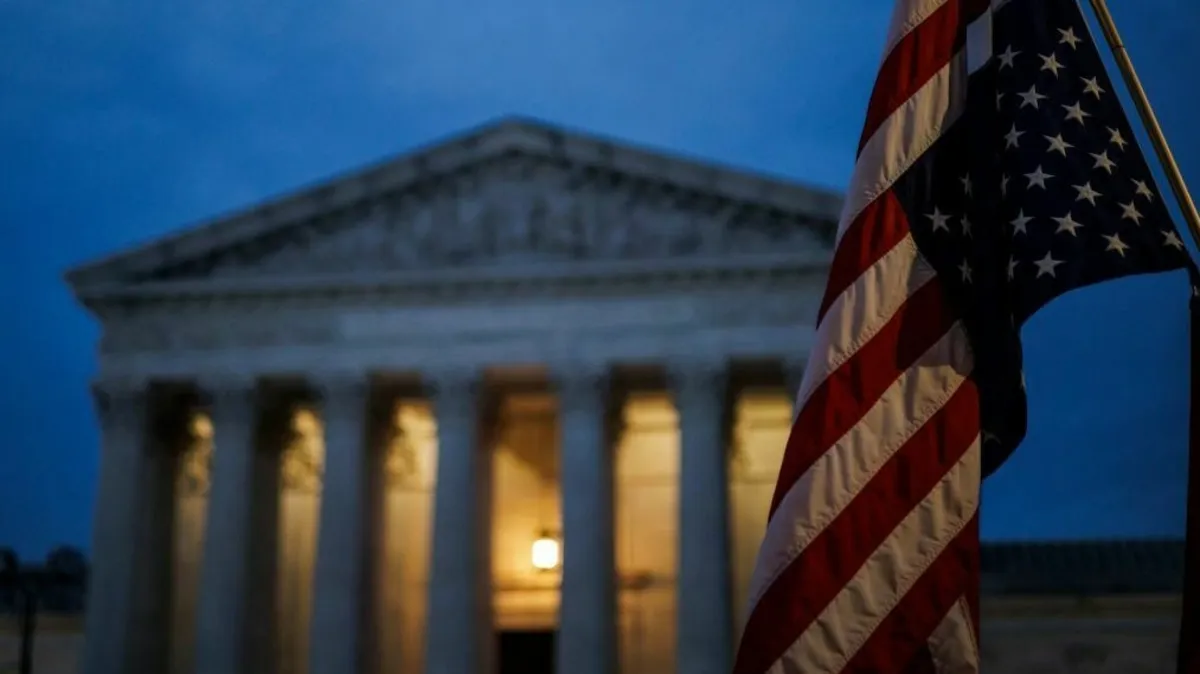
On Friday, the U.S. Supreme Court made a significant ruling by upholding a controversial Texas law that mandates consumers to provide age verification to access commercial websites featuring sexually explicit material. This landmark decision marks the first instance where the Supreme Court has imposed specific requirements on adult consumers in an effort to protect minors from accessing inappropriate content online.
While the law's primary aim is to restrict minors' access to online sexually explicit content, free-speech advocates argue that it is overly vague and creates substantial barriers for adults seeking constitutionally protected expression. During the legal proceedings, attorneys representing Texas asserted that opponents of the law failed to demonstrate any tangible instances where an individual's rights were significantly hindered by its enforcement.
In a decision that fell along ideological lines, the Supreme Court voted 6-3 in favor of Texas, asserting that the law only incidentally impacts the protected speech of adults. The Texas statute, enacted in 2023, is designed specifically to shield individuals under the age of 18 from exposure to sexually explicit material by requiring all users, including adults, to verify their age—typically through a government-issued identification—to confirm they are at least 18 years old.
The law applies to all websites that feature content deemed sexually suggestive in nature, defined as any material that is one-third or more sexually explicit and considered harmful to children. However, the interpretation of what constitutes "harmful to children" has sparked considerable debate, as it potentially encompasses a wide array of content, including romance novels and R-rated movies.
The Free Speech Coalition, an adult industry trade association, and several adult content producers have challenged the Texas law in court, claiming it infringes upon the First Amendment rights to free speech and expression. Among their concerns is the fact that although the law prohibits companies from retaining identifying information, it does not restrict the transfer of that information or implement adequate protections to safeguard adults' privacy.
Moreover, the challengers argue that the state's defense of the law is weakened by the fact that it exempts search engines and social media platforms—key avenues through which minors can access sexually explicit content—from its regulations.
Initially, Federal Judge David Alan Ezra, a Reagan appointee, blocked the law from taking effect, citing its likely unconstitutionality. However, a Fifth Circuit Court of Appeals panel later voted 2-to-1 to uphold the law, allowing it to proceed. The appeals court maintained that the state sufficiently justified the law as rationally related to its goal of protecting children, which met the requirements of the rational basis test. This test is the least stringent legal standard, prompting challengers to assert that it was too lenient and overlooked the implications for adult users.
The Supreme Court's decision to uphold the Texas age verification law raises crucial questions about the balance between protecting minors and preserving adults' rights to access constitutionally protected content. As this ruling sets a precedent, it will inevitably influence future legislation and judicial interpretations surrounding online content and free speech in the digital age.